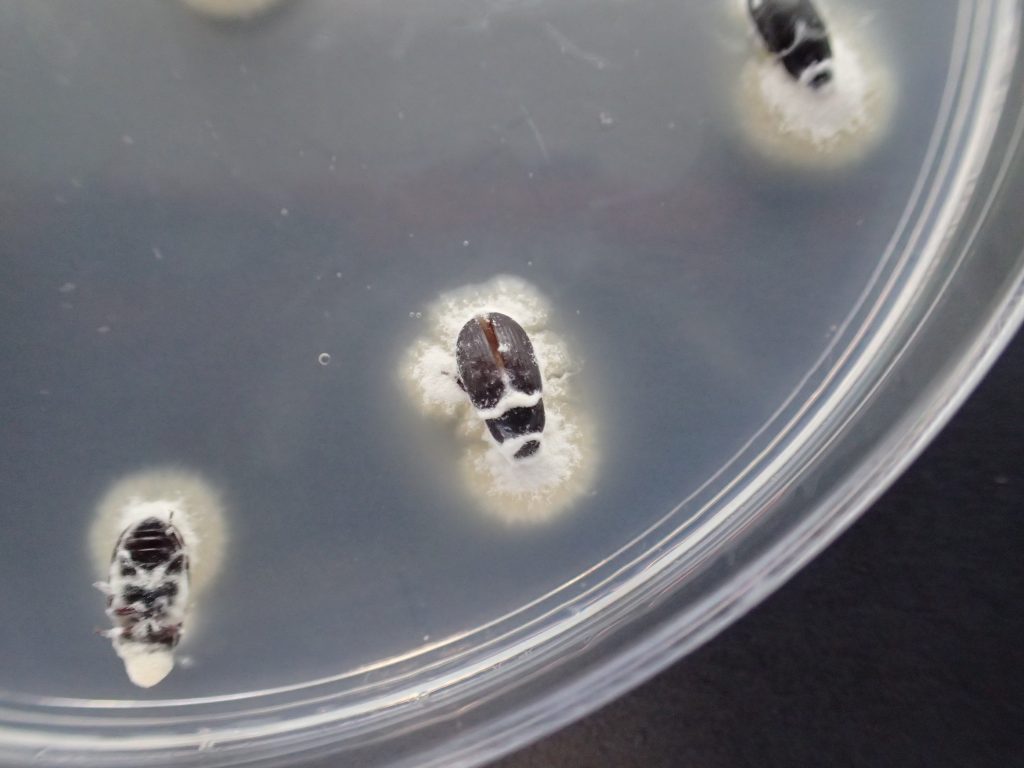
The lesser mealworm, also known as darkling beetle, is a common insect-pest to the chicken meat industry due to the damage it can cause to the structure of chicken sheds through tunnelling and its ability to carry pathogens. Lesser mealworms are often found in poultry production systems where deep litter and open floor housing provide optimal survival and reproductive conditions.
Following on from preliminary research that developed a proof-of-concept for non-toxic fungus-based pesticides (mycopesticides) to control lesser mealworm populations, new research is underway to optimise the use of mycopesticides for this purpose.
Leading the current research project is technical officer Steven Rice from the Department of Agriculture and Fisheries (Queensland). He said, “What we’re doing now is testing the mycopesticide under various conditions including different litter use practices and different floor types in meat chicken sheds.”
Mr Rice said, “We’re conducting field trials, currently at two farms in the Caboolture area, to compare the mycopesticide in full litter replacement and partial litter re-use systems. We’re running the trials through the seasons so we can compare the fungi’s impact on the lesser mealworm populations in winter to what happens in the warmer months.”
“The initial results look promising. The mycopesticide appears to reduce lesser mealworm populations under both litter systems; but there’s more research to be done.”
Approved insecticides are currently used to control the lesser mealworm pest. However, insecticides potentially leave some residues in the litter and the lesser mealworm builds up resistance to them over time. An additional objective of this latest research project is to test the potential of using the mycopesticide in conjunction with insecticides to reduce overall chemical usage and maximise control of lesser mealworm populations.










